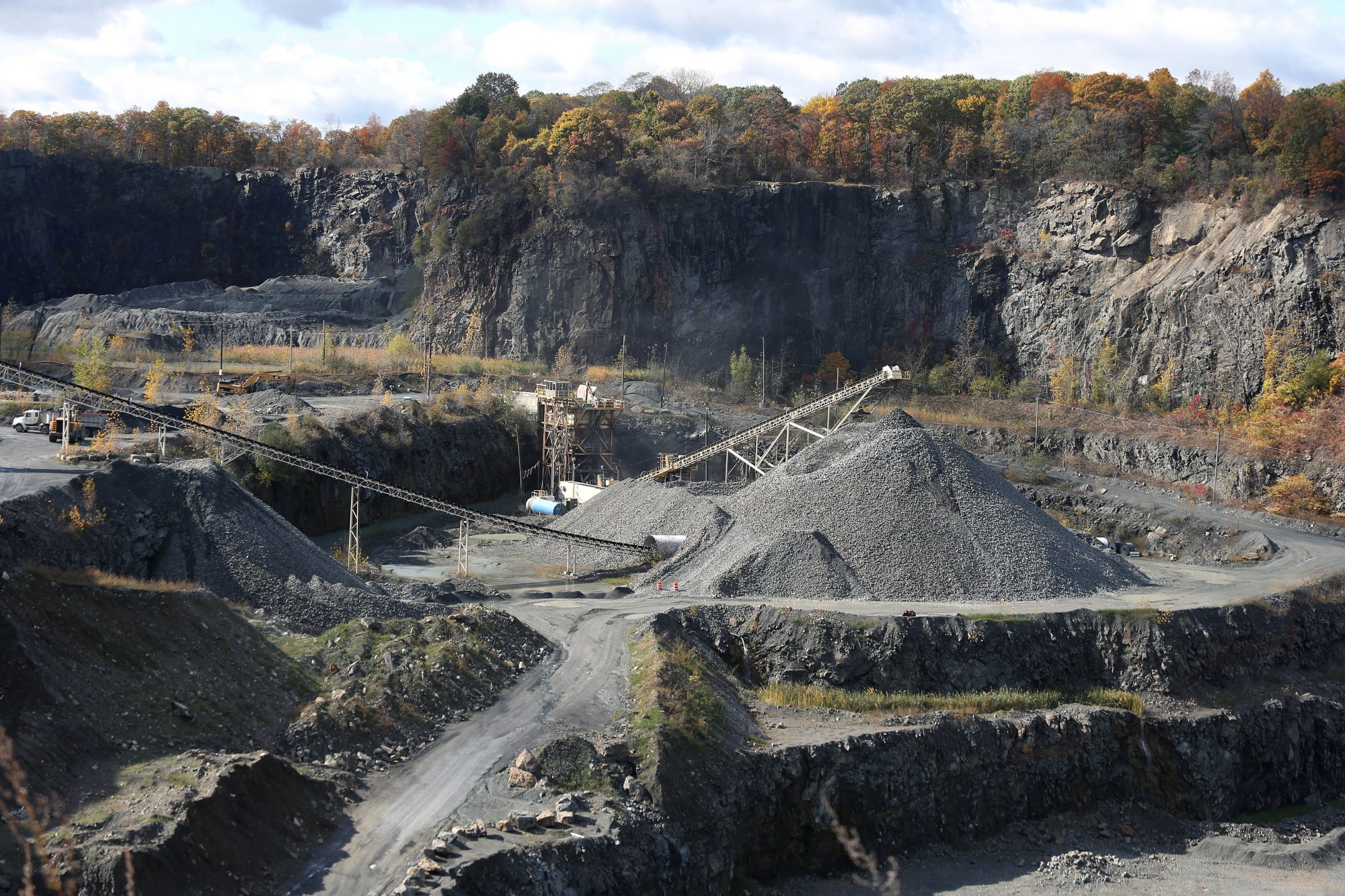SWAMPSCOTT — Aggregate Industries – Northeast Region, Inc. (Aggregate), a company that has conducted excavating operations in Swampscott and Salem for more than 100 years, has filed a civil-rights complaint against the Town of Swampscott and its Select Board.
The complaint, filed in the U.S. District Court in Boston, claims the board’s actions, with respect to an earth-removal permit issued to Aggregate on June 16, 2021, were driven by “Chair Peter Spellios’s bias against, and personal animus towards Aggregate,” and that those actions resulted in “an arbitrary and ultra vires decision to cut short Aggregate’s negotiations with the board’s own Earth Removal Advisory Committee (ERAC).”
Town Administrator Sean Fitzgerald said, contrary to the claims made by Aggregate, “there’s another side to this.
“This is the worst type of industry that any community can be burdened with. When they blast, the entire town shakes,” he said. “This is a quality-of-life issue on so many levels, locally, statewide and nationally, which adversely affects everyone. I am happy to fight the fight and bring that critical conversation to the public, as this type of activity needs to be more tightly regulated.”
According to the town’s website, activities in the quarry are regulated through various federal and state regulations in addition to local regulations contained in town-issued earth-removal permits. Those permits are reviewed by ERAC, which provides recommendations to the Select Board. Aggregate claims that the Select Board’s intervention in the process was both unlawful and counterproductive.
The complaint states the parties had been involved in negotiations on a new permit for 2020-21 for more than a year, and that imposing more restrictions, “would not unnecessarily burden” Aggregate’s business.
“As those discussions approached the finish line, the board — driven in particular by Chair Peter Spellios’s bias against, and personal animus towards Aggregate — suddenly decided to substitute its own lay opinions for ERAC’s (and the town’s expert’s) findings, and issue a more restrictive permit well in excess of state and federal law,” the complaint stated.
The complaint alleges that Spellios requested several new changes to the permit to address complaints from residents — complaints including excessive vibration and dust levels and property damage, and that he was “seriously biased against Aggregate and viewed Aggregate as an outside pariah … and publicly made his bias against Aggregate part of his personal political platform.”
Under the current permit, Aggregate claims it will be unable to meet nearly 35 percent of its customers’ demand, will render large portions of the quarry unusable, will prevent access to 1.1 million tons of saleable materials, will result in a $34-million loss over the next 19 years and will render some or all of the quarry valueless.
Count one alleges that the town and board’s actions constitute an uncompensated seizure in violation of the Fourth Amendment.
Count two claims the town and the board’s actions violated procedural and substantive due-process rights guaranteed under the Fifth and 14th amendments.
“The town and the board also violated Aggregate’s due-process rights by acting on the basis of Spellios’s personal bias and in an arbitrary and capricious manner,” the complaint alleged.
The board’s and town’s conduct “shocks the conscience because they used their power and authority to interfere with a longstanding property owner’s business in an arbitrary manner based on bias and personal distaste.”
Count three asks the court for a declaratory judgment based on Aggregate’s claim that the town and board “have acted ultra vires, have exceeded their municipal authority, jurisdiction and power by purporting to impose restrictions… on portions of the quarry that are outside Swampscott.”
The complaint states that Aggregate seeks relief for “multiple constitutional violations” in the form of court-determined damages and an award of legal fees as well as a declaratory judgment that the town and board’s conduct was unlawful.
It also seeks to quash the existing permit, which will allow Aggregate and ERAC to “finalize negotiations on a revised permit that is consistent with the applicable scientific analysis and evidence, regulates only conduct subject to the town’s legal authority and respects Aggregate’s constitutional rights.
“Aggregate only seeks to protect and enforce its constitutional and legal right to be free from unreasonable and biased government action that goes too far,” the complaint states.
Fitzgerald said he expects the town’s answer to the complaint will be filed in January, at which time it will have the chance to address Aggregate’s claims.
“It is patently unfair for Aggregate to attack any elected officials for having the courage to stand up to and take on a multinational conglomerate,” he said. “Our job is to protect, so I refuse to cower every time someone threatens a lawsuit, but if someone wants to bring the fight, we are right at home.”

